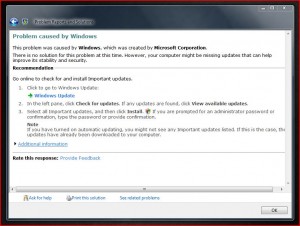As some readers know (and others have probably guessed) there are lots of things about Microsoft that I dislike. But one thing I’ve always admired about the company is the fact that it’s never had any corporate debt. Bill Gates famously said once that he wanted Microsoft always to be able to run for an entire year without earning a cent in revenues. Until today, however, I didn’t know why he felt so strongly about that. Now, thanks to Mark Anderson, I do. He’s relayed the entire text of a speech Steve Ballmer gave the other day to the Democratic Caucus. Here’s the passage that made me sit up.
When I got to Microsoft and we were this tiny little company, we didn’t have the budget to put people up in hotels, so I lived with Bill. And every time I sat down, in every corner, nook and cranny of couches, tables, I’d find these little yellow pieces of paper with Bill’s writing that had a bunch of people’s names and companies’ names and numbers.
I think of myself as pretty good pattern matching… and I just couldn’t figure out what these numbers were.
So, finally I said to Bill, what is this? He says, Steve, I’m really always worried about whether we’re going to have enough cash to pay people. So, every night I write down everybody who works for us and how much we pay them, and every contract we have and how much it’s worth. I’ve got to count the pennies tightly and that’s why you’re here now.
It’s a great talk, which is essentially about how the US needs to reboot itself. And another interesting thing: he flew to the meeting on the red-eye scheduled flight, not in a corporate jet. A neat contrast to the automobile moguls, eh? And to the Citicorp execs.

